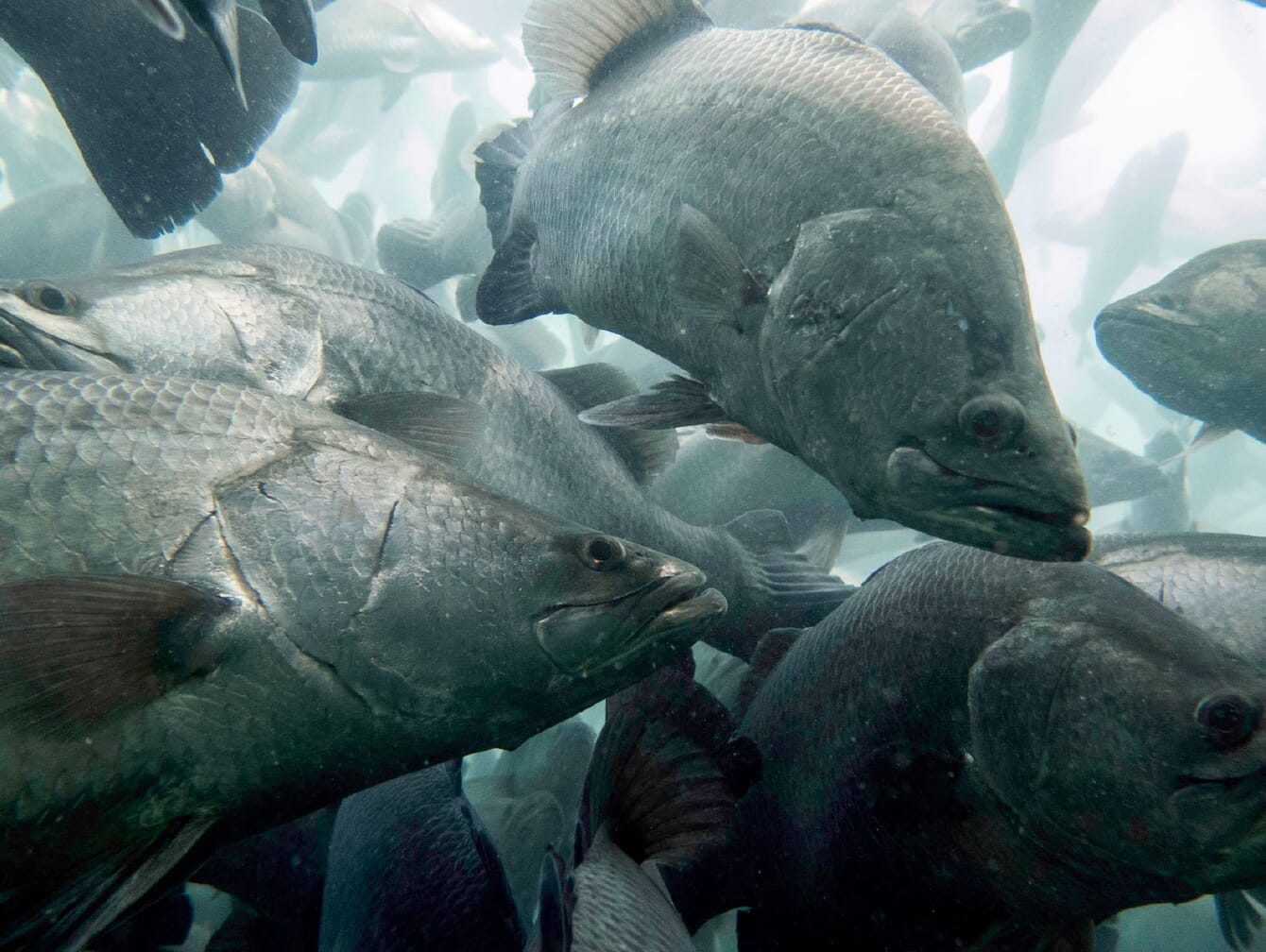
Infectious spleen and kidney necrosis virus can be devastating for aquaculture operations © Barramundi Group
The scientists developed a new genetic test for the infectious spleen and kidney necrosis virus (ISKNV), a virus that severely affects farmed and ornamental fish varieties worldwide. ISKNV has three known variants but validated tests to identify the virus only pick up two of these variants.
New research published on 6 February in PLOS One demonstrates a single test for all three genomic variants of the virus, which can kill 50 to 100 percent of fish infected.
The third variant – known as TRBIV – is an emerging pathogen and causing fish deaths in barramundi farms in Southeast Asia. While the disease caused by the virus is reportable to the World Organisation for Animal Health, TRBIV is not included in the WOAH testing requirements.
Associate Professor Joy Becker from the School of Life and Environmental Sciences at the University of Sydney is a corresponding author of the paper. She said: “The emerging TRBIV variant is a risk to the Australian barramundi industry.
“Our new diagnostic test is the most advanced in addressing WOAH requirements for test validation. It can detect all three variants of the virus with very high sensitivity and specificity.
“Once validated, we expect this diagnostic test will help keep this exotic virus out of Australia.”
While ISKNV has not been detected in wild fish stocks in Australia, it is regularly detected in ornamental fish in quarantine at the international border and in retail pet shops, according to the Australian Department of Agriculture.

The new diagnostic test is designed to detect all three variants of ISKNV and can help shore up biosecurity protocols
Associate Professor Becker said: “Exotic disease incursions are one of the biggest risks for our wild and farmed fish. The ISKN virus, which now includes the TRBIV variant, is a risk to Australian species, including barramundi and Murray cod.
“Our diagnostic test is designed to detect all three variants and provides the stringency we need to uphold Australia’s world-class biosecurity.”
Deputy Vice-Chancellor Emma Johnston said: “Associate Professor Becker is an outstanding scientific leader in aquaculture and fish health.
“Working with international colleagues, her latest research is another important contribution that can help Australia – and the world – develop sustainable stewardship of our oceanic resources and support global food security.”
Associate Professor Becker said that while the virus is devastating for infected fish, the disease poses no risk to humans.




